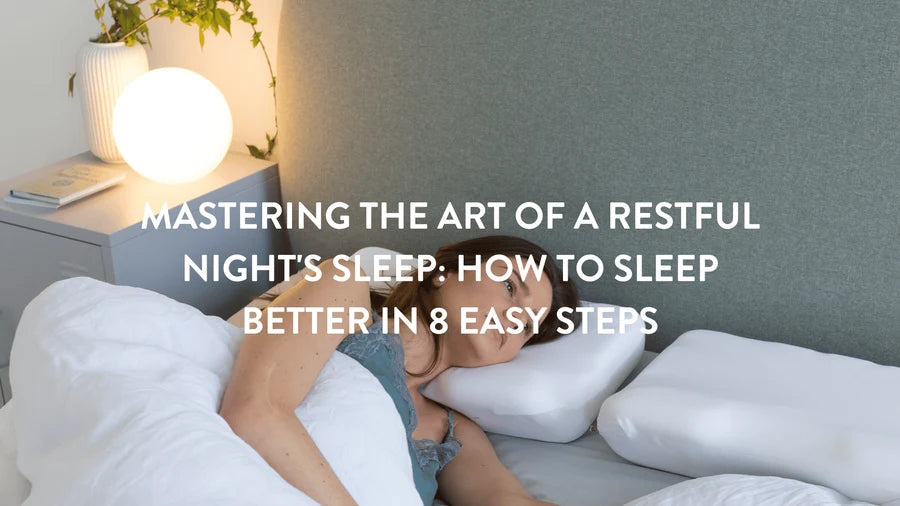
Mastering the Art of a Restful Night's Sleep: How to Sleep Better in 8 Easy Steps
Are you finding yourself in a constant battle with sleepless nights? You're not alone, many people struggle with getting quality sleep, which is essential for our physical and mental health.
Here, we'll guide you through 8 straightforward steps that can help transform your sleep routine and have you waking up feeling rested and rejuvenated. You can make a difference to your sleeping habits today by following some or all of our following steps.
Unlock your best sleep yet with our easy 8-step guide. Experience the Putnams difference tonight. #BetterSleepWithPutnams #PutnamsSleepGuide #RestEasy #WakeUpRefreshed #PutnamsSleepTips #findcomfort #putnams pic.twitter.com/Bbx2yt5fth
— Putnams (@PutnamsComfort) January 26, 2024
Sleep Step 1: Invest in a Comfortable Sleep Environment
“Sleep is the best meditation.” — Dalai Lama
Don't underestimate the power of a comfortable sleep environment.
A supportive mattress and pillows tailored to your sleep needs can dramatically improve your sleep quality.
Consider using sleep aids like bed wedges, sleep spray, eye masks, earplugs, or white noise machines to block out potential disturbances.
- A Supportive Mattress: Everyone has unique sleep preferences and with this in mind mattresses should be tailored for the best fit, afterall you will be spending about a third of your day in one so it's important to get it right. Whether you sleep on your back, side, or stomach, you'll find a Putnams mattress that provides the right balance of comfort and support.
- Pillows Tailored to Your Needs: Pillows aren't one-size-fits-all. Nowadays increasingly pillows are a personalized comfort, which is why there are so many pillow options on the market, memory, buckwheat and British wool pillows are just a few of the more popular options. All of the Putnams pillows are designed to ensure optimal alignment and relieve pressure points.
- Sleep Aids for Enhanced Rest: Beyond mattresses and pillows, sleep aids such as body oil, pillow spray, eye masks, earplugs, and white noise machines. These products are designed to block out potential disturbances and create a serene sleep environment. Putnam's Apothecary range can help calm your sleeping environment and enhance your sleep routine.
Sleep Step 2: Embrace a Consistent Sleep Schedule
We all know our bodies thrive on routine.
So it's no wonder establishing a fixed sleep schedule helps regulate your internal clock and can significantly improve sleep quality. Try your best to stick to the same bedtime and wake-up time every day, even on weekends.
Consistency is key.
Try the 10-3-2-1-0 Sleep hygiene method.
Sleep Step 3: Develop a Relaxing Bedtime Routine
A calming pre-sleep routine can be a game-changer.
Activities like reading a book, listening to relaxing music, indulging in a warm bath, or practicing relaxation techniques such as deep breathing or meditation can help signal to your body that it's time to wind down and sleep. In the initial stages aim for this routine to last about an hour but over time this time period can be halved.
Sleep Step 4: Cultivate a Sleep-Conducive Environment
"True silence is the rest of the mind, and is to the spirit what sleep is to the body, nourishment and refreshment.” — William Penn, Politician
Your bedroom should be a sanctuary for sleep, like Superman's Fortress of Solitude! Keeping the room cool (65-68F according to the Sleep Foundation), dark, and quiet can significantly enhance your sleep quality.
Investing in a comfortable mattress, pillows, and bedding that cater to your sleep posture and preferences can also make a world of difference. Take time and talk to the professionals about your requirements to make sure your specific needs are met.
Sleep Step 5: Limit Blue Light Exposure
The blue light emitted by electronic devices can interfere with your sleep. Avoid using smartphones, tablets, or laptops for at least an hour before bedtime. Instead, engage in calming activities or read a book to help prepare your body for sleep.
Dimming the lights during the 'golden hour' before bedtime helps your body prepare melatonin levels ready for a restful night's sleep.
If possible it's a good idea to leave these gadgets outside your bedroom environment. Thus, removing temptation and impromptu calls that might upset your sleep routine.
Sleep Step 6: Be Mindful of Your Diet and Hydration
The food and drink you consume can impact your sleep.
In most cases it's best to avoid heavy meals, caffeine, and alcohol close to bedtime, as they can disrupt your sleep. Opt for a light, balanced dinner and limit your fluid intake to prevent waking up for bathroom trips during the night.
Whilst alcohol can trigger drowsiness it is proven that it is not conducive to a good night's sleep. As with caffeine, avoid consuming after 2pm is the considered advice. Obviously there are exceptions depending on an individual's Circadian Rhythm but as a general rule the above advice is agreed upon by most sleep specialists.
Try the 10-3-2-1-0 Sleep Rule if you are struggling with a working routine.
Sleep Step 7: Incorporate Regular Exercise
“A well-spent day brings happy sleep.” — Leonardo da Vinci.
Regular physical activity can contribute significantly to better sleep.
Aim for at least 20-30 minutes of moderate exercise most days of the week. However, avoid vigorous workouts close to bedtime as they may leave you feeling energized when you want to wind down.
Exercise incorporated with natural light exposure (30 minutes) is the best way to maximise your time and impact a fully restful night.
Sleep Step 8: Manage Your Stress and Anxiety
"It is a common experience that a problem difficult at night is resolved in the morning after the committee of sleep has worked on it." - John Steinbeck
Stress and anxiety can be major sleep disruptors. Find healthy ways to manage these feelings, such as practicing relaxation techniques, journaling, or seeking support from a therapist or counselor.
Remember, it's okay to ask for help.
Improving your sleep quality doesn't have to be complicated. In fact, like most things in life the simpler the better!
By incorporating these 8 easy steps into your routine, you can wake up feeling more rested and rejuvenated. The sleep foundation recommend 7 hours and you should aim for a temperature around 65-68 degrees Fahrenheit.
Remember, good sleep is not a luxury; it's a necessity for your overall health and well-being. Prioritize your sleep, and enjoy the sweet dreams that follow.
“Goodnight — may you fall asleep in the arms of a dream, so beautiful, you’ll cry when you awake.” - Michael Faudet, Author




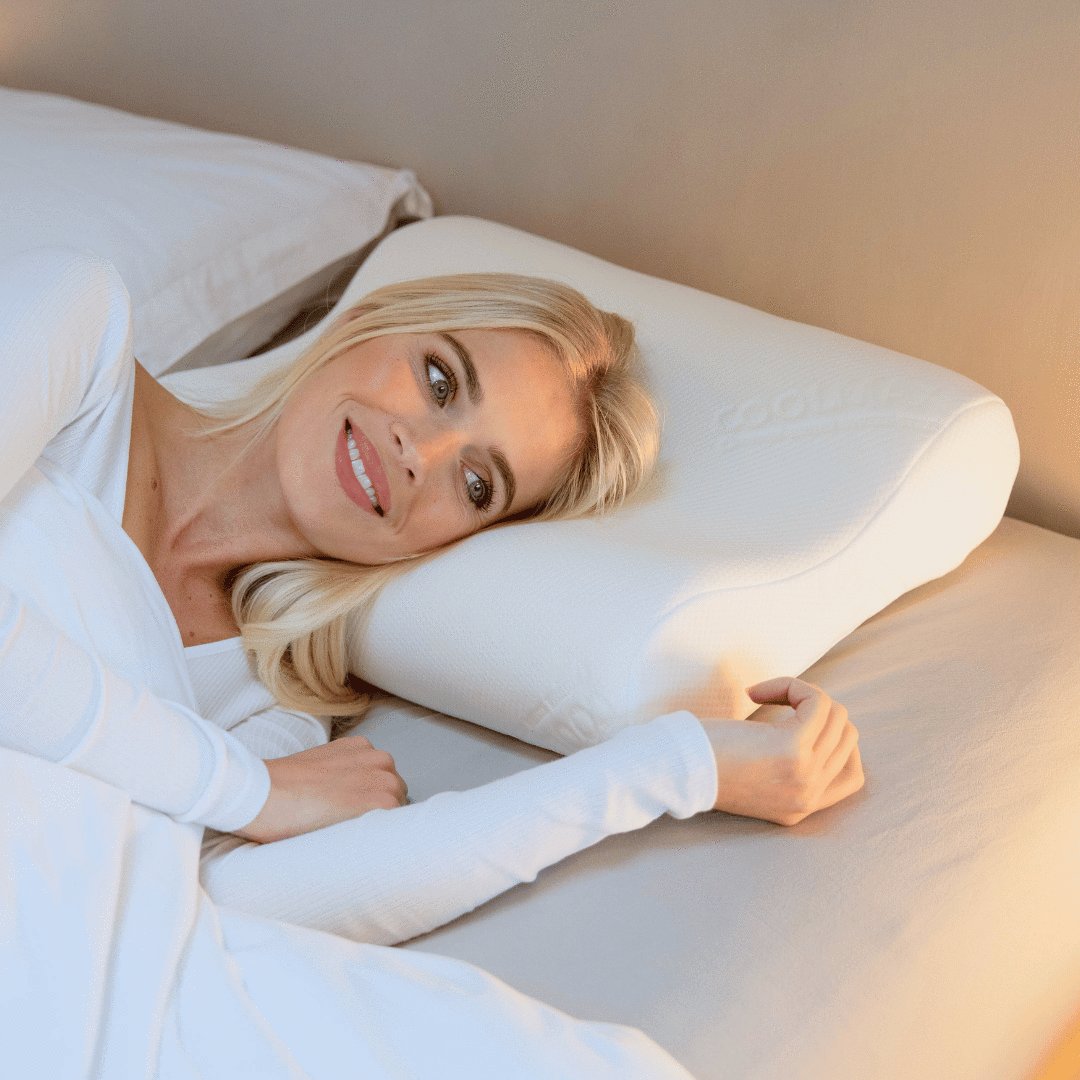
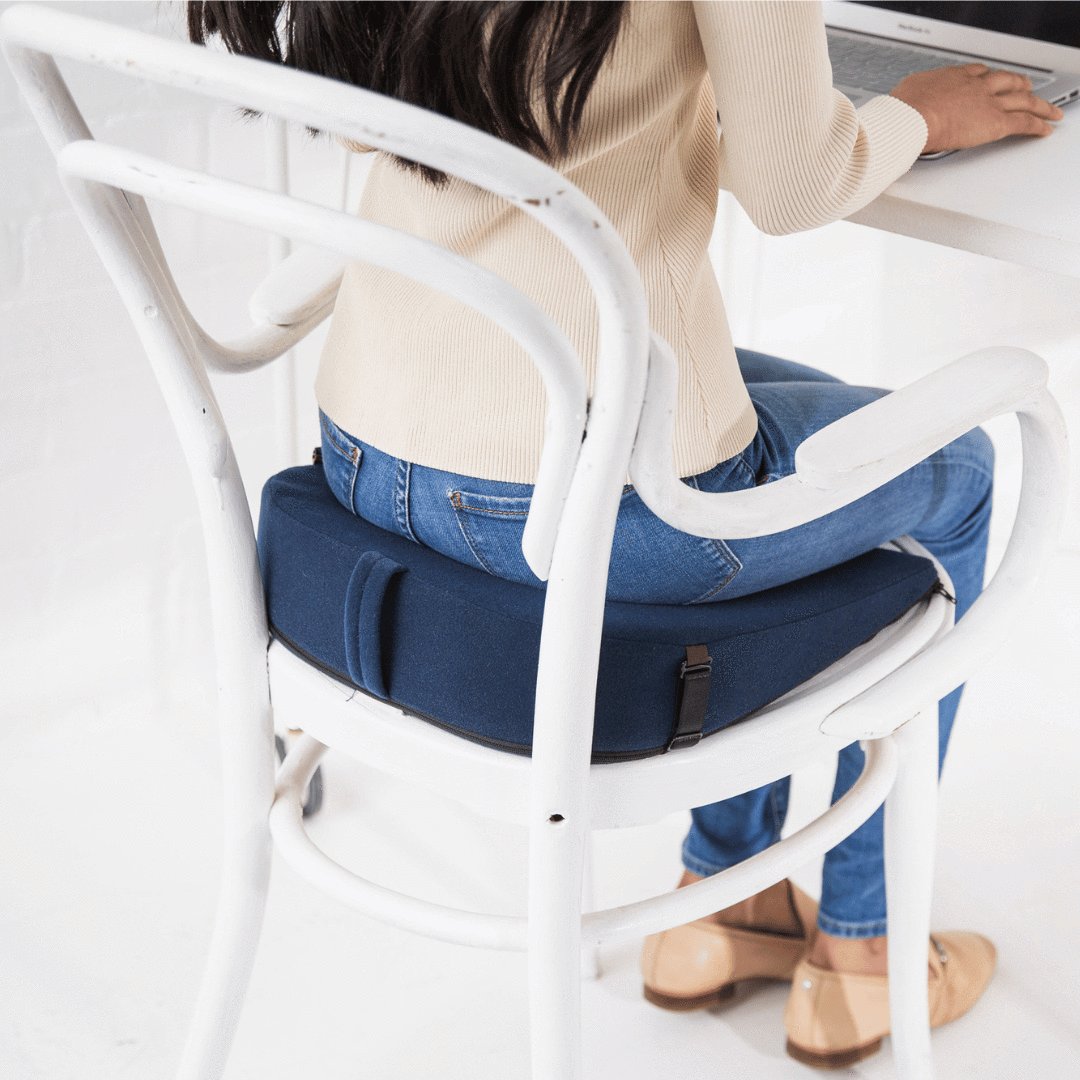

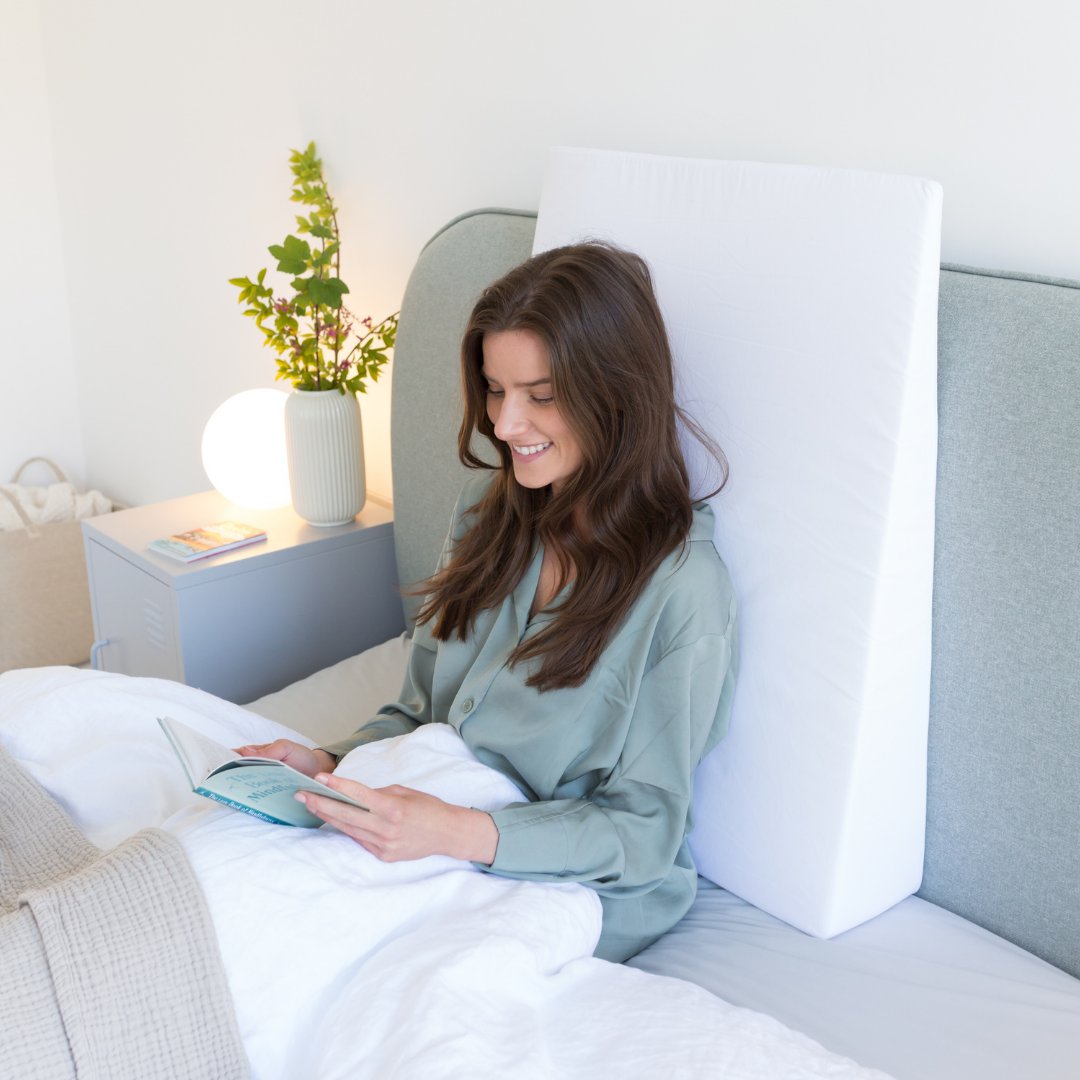
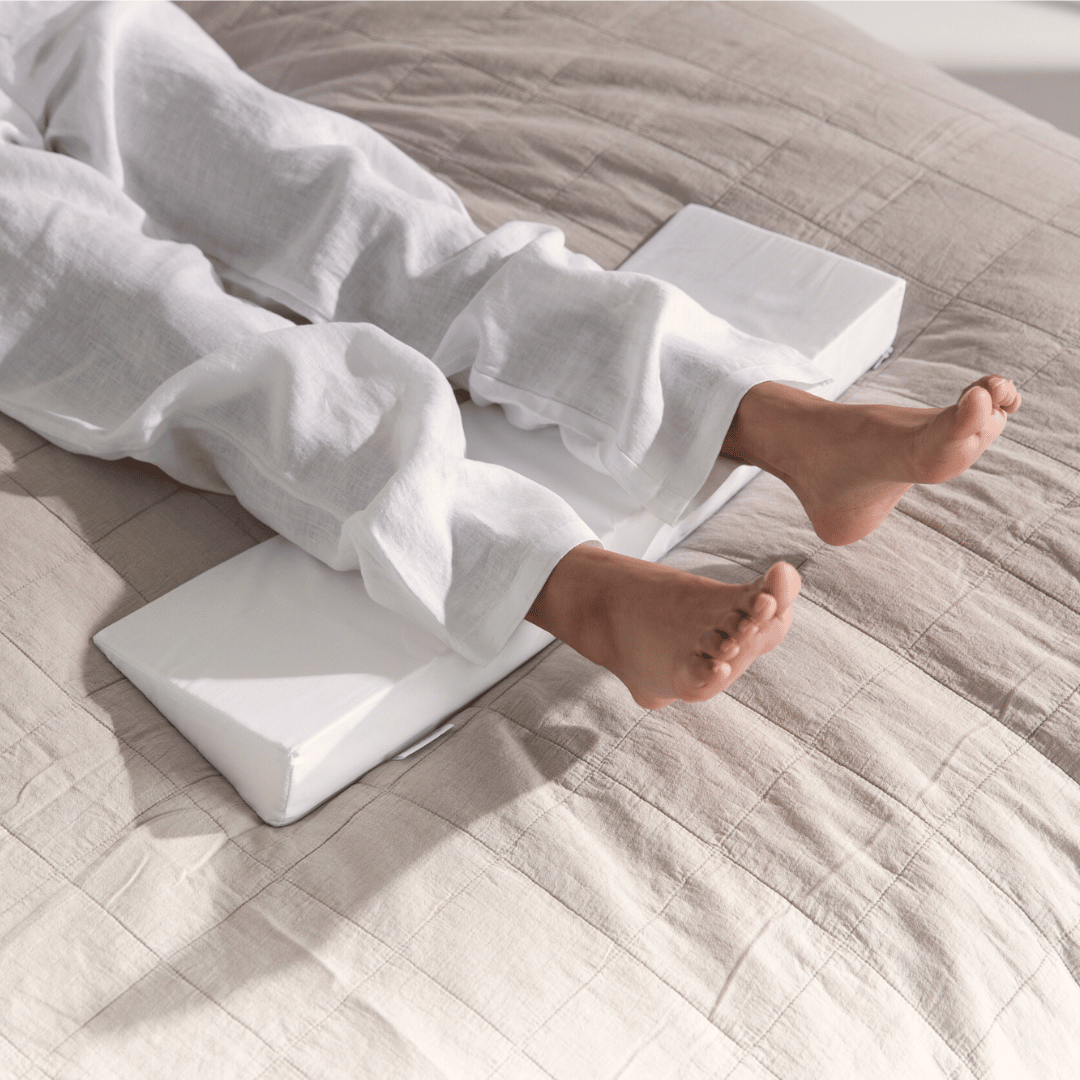



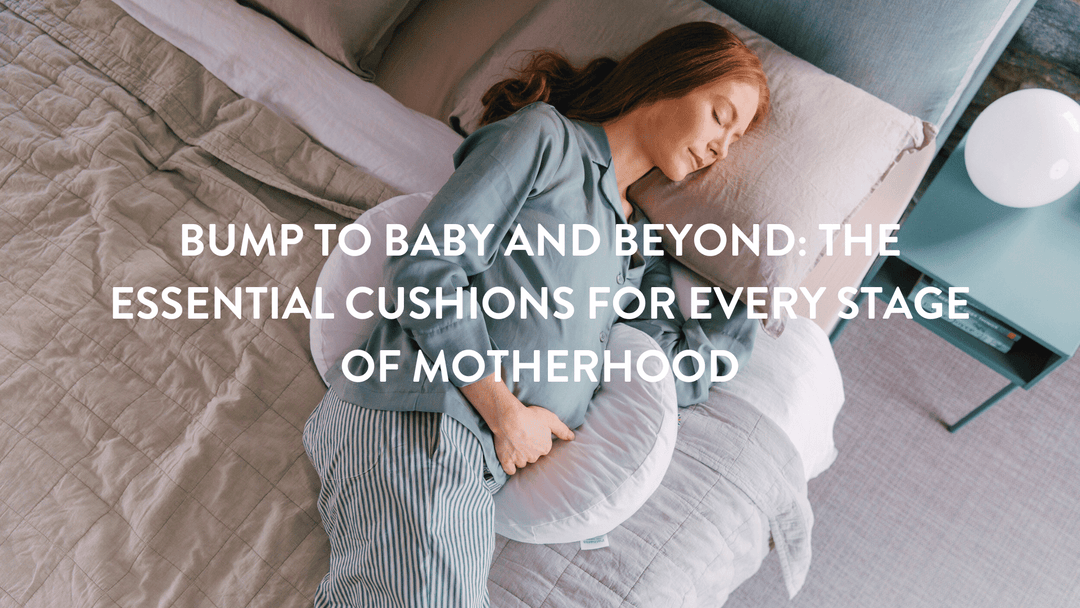


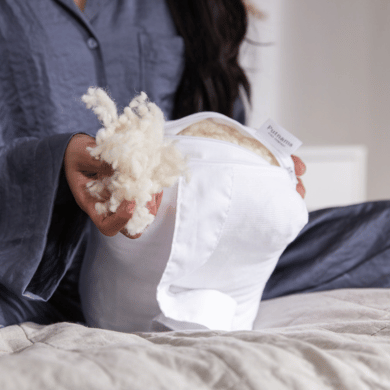

Leave a comment